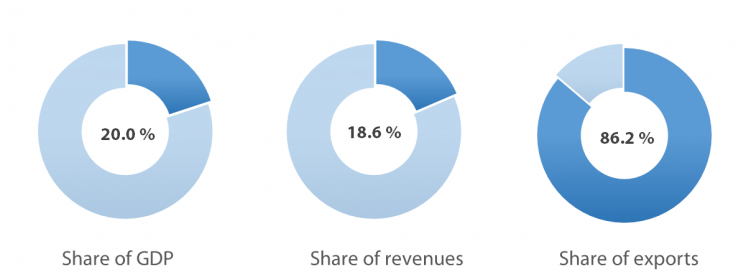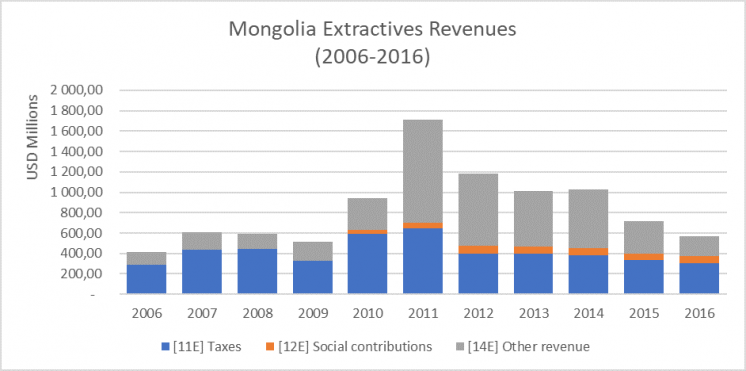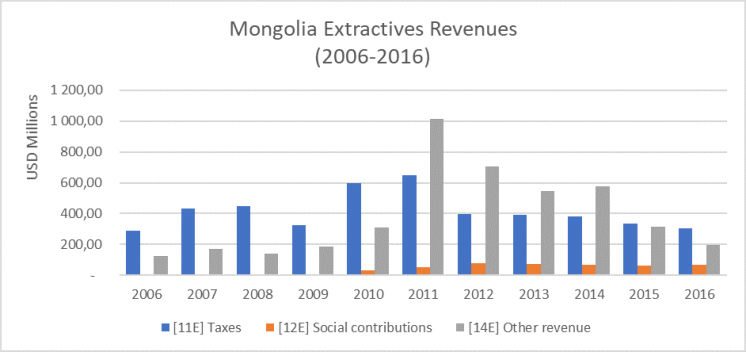
From EITI reporting to systematic disclosure in Latin America and the Caribbean
From EITI reporting to systematic disclosure in Latin America and the Caribbean
Colombia and the Dominican Republic launch EITI Reports through innovative data portals and Mexico prepares to mainstream the EITI from the start.
Latin American countries are increasingly disclosing EITI data through innovative approaches that bring information on the extractive industries online in a more comprehensive, timely and user-friendly fashion.
On 28 November, the Dominican Republic presented its first EITI Report covering 2015. The government received a total of USD 298 million from both metallic (USD 249 million) and non-metallic sector (USD 49 million). The Pueblo Viejo gold and silver project (Barrick) accounted for most of this revenue. The Dominican Republic EITI have also created an EITI portal that includes up-to-date information about regulations, contractual arrangements, searchable production data by region and commodity, data on subnational transfers and links to budget portals, and illustrative infographics on the sectors contribution to the economy.

The report sheds new light on the contractual framework that regulates large mining operations in the Dominican Republic. These projects are regulated through a complex web of contracts with some regulations dating back to 1950s. State participation, now scaled down significantly, is going through an uncertain transition from exclusive ownership by the central government to a partial transfer of ownership of local projects to regional governments. The report also includes a number of recommendations, especially on the need to improve inter-governmental coordination for better monitoring of the sector. The report also calls for improvements in the regulation of Law 64-00 that mandates subnational transfers which are currently made under an intricate web of ad-hoc rules.
On 6 December Colombia launched its 2016 EITI Report on a digital platform. Together with its automated data collection, Colombia became the first country in Latin America to move to fully online reporting.

Figure 1- EITI Colombia portal
The portal follows the extractive value chain and includes a number of new features, including information on environmental licenses and fees paid to the environmental regulator. At the launch event, the Vice-minister of Environment, Carlos Alberto Botero stressed the importance of using the EITI in Colombia to bring more transparency to environmental management. The report also includes geo-referenced information about mineral and oil production and royalties that accrue to municipalities and regional governments. This information is complemented by the Mapa Regalia tool, which allows citizens to follow up the execution of projects financed with royalties.
The 2016 EITI Report included for the first time detailed information on the fees paid by extractive companies for the transportation of minerals, mainly coal, and crude oil, as Colombia’s oil production is mostly onshore. In 2016, transportation related payments amounted to 168 million USD, mostly paid to more than 16 municipalities across Colombia.
The report shows the downward trend in revenues generated by the extractive industry in recent years. Total government revenues from the extractive sector have fallen from 11 billion USD in 2013 to 3 billion USD in 2016. Santiago Angel, head of the Mining Association ACM and member of the EITI multi-stakeholder group highlighted the dire reality of the sector

Figure 2- Total Government revenues from extractive sector in Colombia
The report incorporates a number of improvements identified in previous reporting cycles. The Independent Administration also includes recommendations for future reports including more detailed reporting on social payments.
Finally, Mexico is preparing, from the start of implementation, to disclose information on the Ministry of Finance’s online platform. EITI-Mexico shared these plans at the recent Latin America and Caribbean Peer learning workshop in Santo Domingo on 28-30 November (https://eiti.org/santodomingo2017). Mexico’s goal is to present strategic information in an understandable format and open to the public (open data). They also plan to link the EITI information to other international standards such as the Global Initiative for Fiscal Transparency (GIFT) and Open Contracting Partnership. Mexico’s extractive transparency portal will follow the EITI value-chain with emphasis on following up on the use of revenues through the hydrocarbon and mining funds and the national budget.



